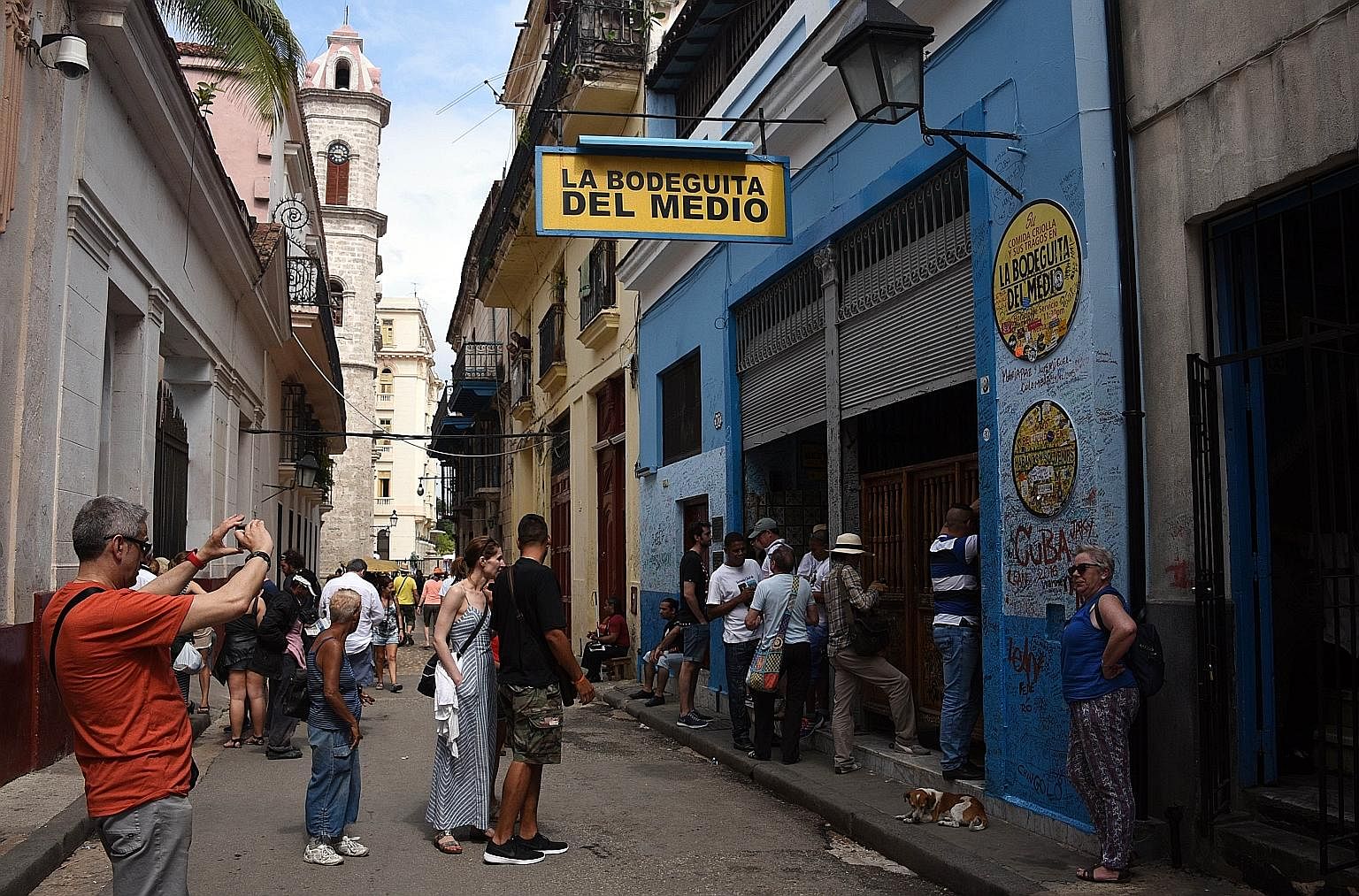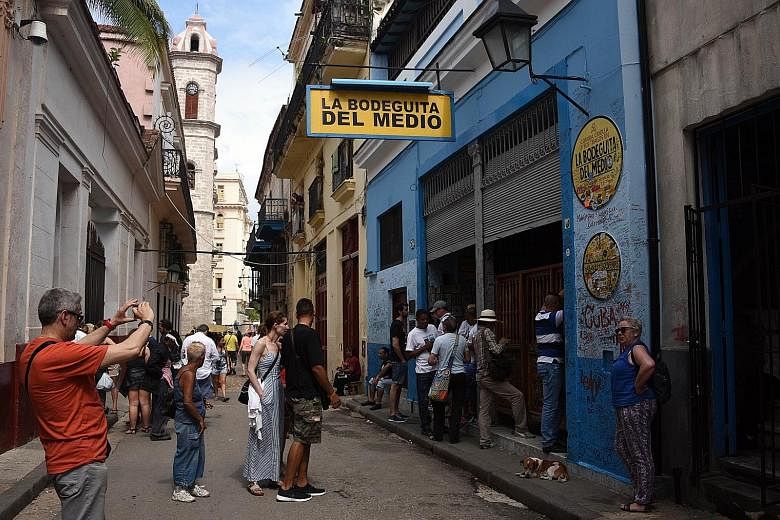Newspaper headlines suggest globalisation is in trouble, if not nearing its end, as trade and global connectivity face strong headwinds in the developed West. But something very different seems to be happening among Cold War survivors long left out of the global web.
Vietnam, the country that was once a synonym for war and was isolated for decades, has enthusiastically embraced the latest United States-led trade pact, the Trans-Pacific Partnership.
Cuba, another revolutionary country long isolated because of the American trade embargo, is the newest aspirant at the door of globalisation. The symbolic key to the door was handed over by US President Barack Obama on his ice-breaking visit to Havana.
Though the 55-year-old embargo is still in place (only the Congress can remove it), Mr Obama has used his remaining months in power to exercise executive authority to crack open the door - easing travel, communications, financial transactions and investments.
He hopes that over time, pressure from Cubans in the US and the enthusiasm of a long-deprived nation could swell the trickle begun this month into a stream. Cuban eagerness to join the world can be seen at Havana street corners where the government has set up Wi-Fi hot spots. (Only 4 per cent of Cuban households have access to the Internet and for the city of two million, there are 25 such hot spots.)
Hundreds gather with their smartphones and tablets to e-mail relatives, access Facebook and call relatives abroad. They use government-issued data cards, paying US$2 (S$2.70) for an hour of talk time. Given that an hour's worth of connectivity costs a tenth of their average monthly salary, the crowd gathering at the hot spots is an indication of the thirst for connection. The government plans to set up more hot spots all over Cuba to meet the surging demand.

For a country with near-universal literacy and high levels of college-educated citizens with very limited employment opportunities, the Internet is seen as the most important gateway to success. The socialist system's accomplishment of free education and healthcare, as well as its failure to generate appropriate jobs, can be seen in every sphere of life.
I encountered a trained architect working as a hotel boy and, in one local restaurant, I found the chef was a trained nuclear engineer!
In preparation for the normalisation of relations, the US has slowly lifted the restrictions for US citizens and residents to travel to Cuba, first allowing group travel for people-to-people contact and more recently individual travel. Later this year, US airlines will start flying 110 flights a day to Cuba, bringing in hundreds of travellers, in addition to cruise liners disgorging thousands.
In view of the limited capacity of hotels in the country that once used to be the gambling and entertainment capital of America's rich, the government has eased the setting up of bed and breakfast (B&B) facilities by families.
All over central Havana and other major cities, B&B symbols proliferate in rich and not-so-well-off neighbourhoods. The more enterprising citizens have applied Cuban versions of jugaad (innovative fix) to set up Airbnb with the help of relatives and friends abroad.
One taxi driver remarked that there are no car engineers in Havana but there are magicians who have maintained 50-year-old American classic cars as Havana's taxi fleet. The latest US relaxation allowing Cubans to hold dollar accounts in the US will help unleash their entrepreneurial spirit.
Cubans whose national sport is baseball, just like in the US, were excited to host a game against an American team on the occasion of Mr Obama's visit, which coincided with a Rolling Stones concert. The cultural openings and Wi-Fi hot spots could mark the beginning of Cuba joining globalisation.
•The writer is consulting editor of Yale Global Online, published by the MacMillan Centre, Yale University.

